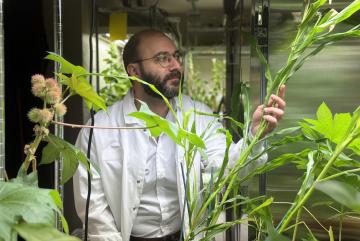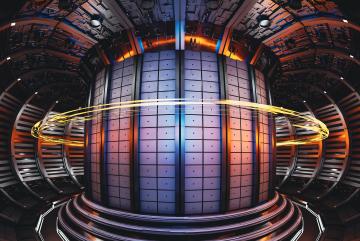
MIT News Office
|
MIT engineers solve the sticky-cell problem in bioreactors and other industries
Their system uses electrochemically generated bubbles to detach cells from surfaces, which could accelerate the growth of carbon-absorbing algae and lifesaving cell therapies.
MIT News Office
|
Darcy McRose and Mehtaab Sawhney ’20, PhD ’24 named 2025 Packard Fellows for Science and Engineering
McRose, an environmental microbiologist, is recognized for researching the ecological roles of antibiotics in shaping ecosystems, agriculture, and health.
MIT News Office
|
Optimizing food subsidies: Applying digital platforms to maximize nutrition
An algorithm can change the face of food assistance policy in the Global South, says MIT assistant professor and J-WAFS researcher Ali Aouad.
MIT News Office
|
Engineering next-generation fertilizers
MIT postdoc Giorgio Rizzo harnesses plant chemistry to design sustainable fertilizers that could reshape modern farming.
MIT News Office
|
How to reduce greenhouse gas emissions from ammonia production
Proposed system would combine two kinds of plants, creating greater efficiency and lowering costs while curbing climate-changing emissions.
MIT News Office
|
New prediction model could improve the reliability of fusion power plants
The approach combines physics and machine learning to avoid damaging disruptions when powering down tokamak fusion machines.
MIT News Office
|
Fighting for the health of the planet with AI
Assistant Professor Priya Donti’s research applies machine learning to optimize renewable energy.
MIT News Office
|
Report: Sustainability in supply chains is still a firm-level priority
Analysis from MIT’s Center for Transportation and Logistics finds companies are still acting to reduce emissions, but often lag in measurement techniques.
MIT News Office
|
Secretary of Energy Chris Wright ’85 visits MIT
Panel discussions focused on innovation in many forms of energy, then a tour of campus featured student research.










